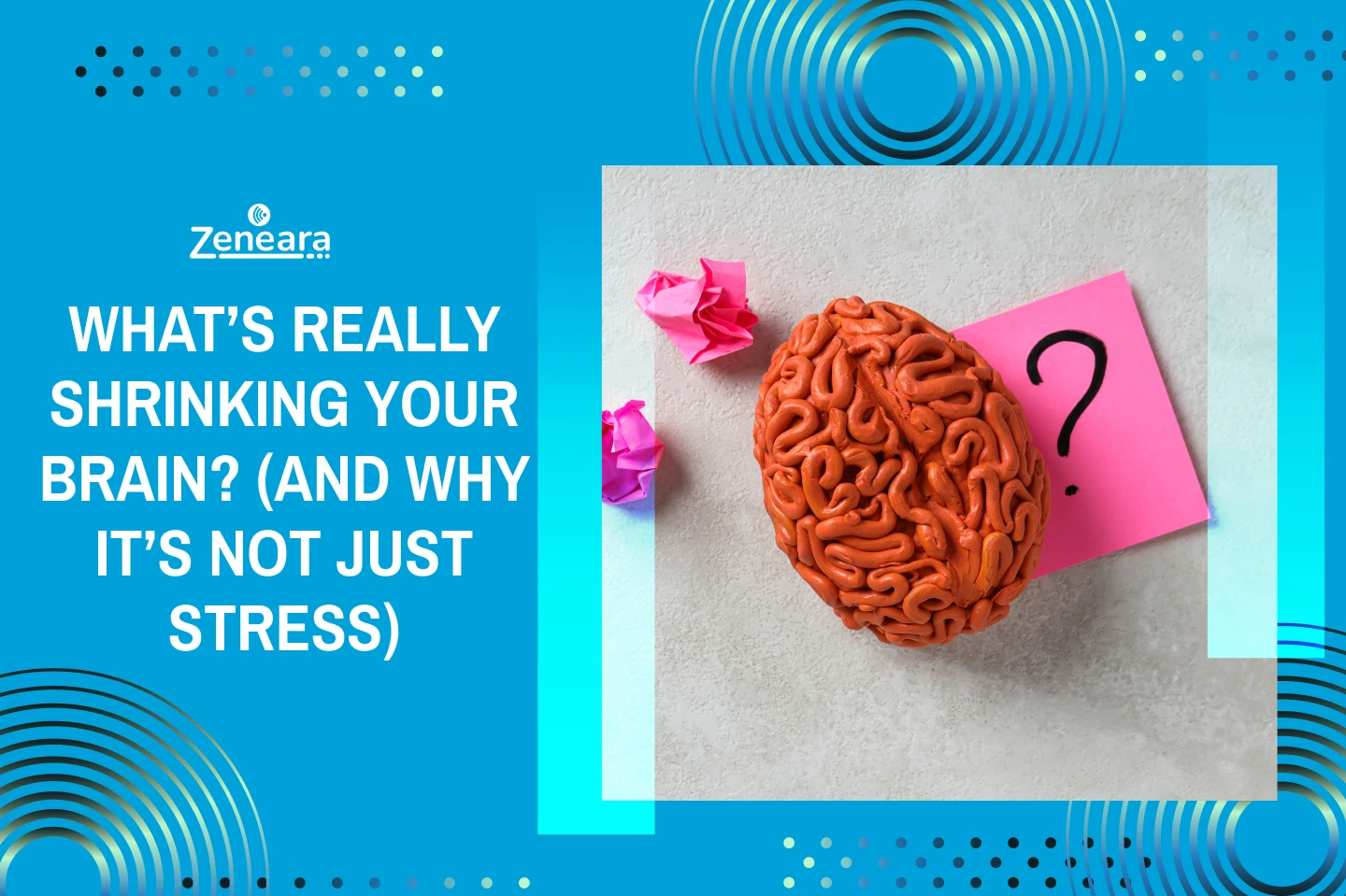Hi, it’s James Barrett here.
Everyone feels down at some point in life, right? Maybe it’s just a rough day at work… tension in a relationship… or that vague sense of feeling “off” without any clear reason.
Usually, these feelings pass, but what happens when they don’t?
When it’s not just one bad day, but many? It’s like a dark cloud that lingers, no matter how much you try to shake it off.
Soon, even the simplest tasks—like getting out of bed or making breakfast—start to feel like uphill battles. You go through the motions, but joy feels distant, like it’s just out of reach.
And it’s more than just sadness. It’s a heavy emptiness that seems to settle in, returning day after day. You start to wonder, “Why am I like this? Why can’t I just feel better?” It’s a constant weight that others might not even notice, but it’s very real for you.
You see, depression isn’t just about feeling low…
It’s a process that transforms your brain, affecting everything from your mood to your ability to think clearly. I’ve spent years studying how deeply the mind and body are connected.
And here’s what I know…
While depression can have a real, physical impact on the brain, your brain is resilient. Understanding what’s happening inside it is the first step to healing.
What Depression Does to Your Brain

Depression isn’t just a mental struggle. It physically changes your brain. It disrupts key neurotransmitters like serotonin and dopamine, which regulate mood, motivation, and pleasure.
When these “happy messengers” are thrown off balance, even joyful moments can feel numb or empty, leaving you stuck in a rut.
The impact goes deeper still. Depression can shrink certain brain parts, like the hippocampus and the prefrontal cortex.
The hippocampus handles memory and learning, while the prefrontal cortex governs decision-making and focus. When these areas shrink, everyday tasks can feel overwhelming, and even simple decisions can seem daunting.
And then there’s inflammation.
It’s not just something that happens to your body. It can happen in your brain too. Depression often triggers chronic inflammation, making everything feel heavier, slower, and more challenging to manage.
So, How Do You Start Healing?
You might be wondering,
“If depression changes my brain this much, how can I fix it?”
The truth is, there’s no quick fix—but there are steps you can take to support your brain’s natural ability to heal.
Let’s start with movement.
You’ve probably heard it a thousand times, but exercise makes a difference. It releases brain-derived neurotrophic factor (BDNF), a protein that helps repair and grow brain cells.
Think of it as sending a repair crew to damaged areas of your brain.
Even a 15-minute walk, a gentle stretch, or dancing to your favorite song can help lift your mood and re-energize your mind.
Your diet also plays a vital role in healing.
Foods rich in omega-3s—like salmon, walnuts, and flaxseeds—along with antioxidant-packed berries and leafy greens, can reduce brain inflammation and promote mental well-being.
But here’s where the gut comes in: a healthy gut can help manage depression, too.

Your gut produces about 90% of your body’s serotonin, the neurotransmitter that regulates mood. An imbalanced gut can disrupt this production, worsening symptoms of depression.
To support gut health, incorporate more probiotics into your diet—foods like yogurt, sauerkraut, kimchi, and kombucha. Add prebiotics too, like bananas, onions, and garlic, which feed the good bacteria in your gut.
These changes improve digestion and create a healthier foundation for your mind.
Mindfulness is another powerful tool for healing. Meditation and deep breathing exercises can help regulate emotions and improve focus.
Just a few minutes a day can increase gray matter in areas of your brain that manage mood stability.
You don’t have to start big—simply close your eyes, focus on your breath, or listen to calming music for a few minutes.
Sleep is essential for brain repair. During sleep, your brain processes emotions, removes toxins, and regenerates cells. Aim for 7-8 hours of rest each night to allow your brain to heal and reset. Establish a bedtime routine… reduce screen time, read a book, or listen to calming sounds to create a restful environment.

Finally, reach out and talk to someone. Depression thrives in isolation, but sharing your struggles with a friend, therapist, or support group can provide perspective and relief. Sometimes, just knowing that someone else understands can lighten the burden.
Have you tried any of these strategies? What’s helped you, or what’s been a challenge? I’d love to hear your thoughts. Share your experience in the reply.
Remember, your brain is resilient, and so are you. This isn’t just about feeling better. It’s about reclaiming your life, joy, and peace of mind.





